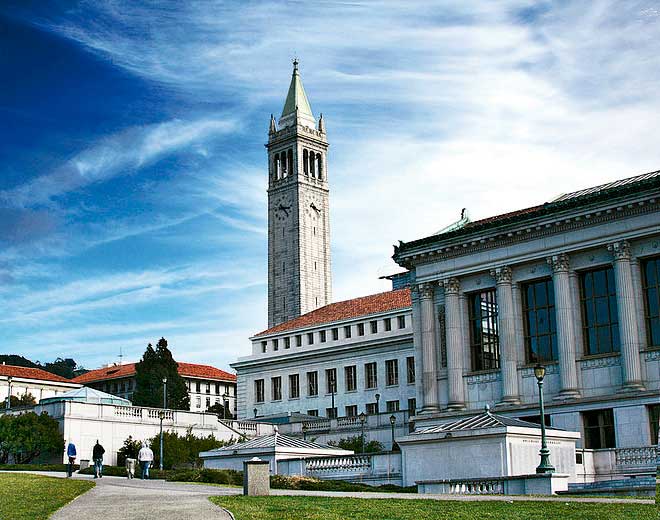NEIS Goes to School
Jun 1, 2017

Inspection service finds the complexities of working on UC Berkeley campus provides a learning experience.
The campus environment presents a challenging situation for elevator service and inspection companies. With numerous activities (such as high-profile sports events and political speeches and gatherings), security requirements, access issues, parking, 24-hr. operation and a mix of building types (residence halls, classrooms, laboratories, etc.), college campuses are truly unique communities.
National Elevator Inspection Services (NEIS)/Bureau Veritas has worked with a variety of clients in the education field, ranging from small rural school districts to sprawling urban college communities. Sometimes, the relationship can result in a learning experience for both the contractor and the client; for NEIS, one such client has been the University of California, Berkeley.
NEIS assists Berkeley’s needs for flexible, predefined scheduling, by being the only private, third-party inspection provider authorized to submit reports for state operating-permit applications. Contracting with NEIS has allowed Berkeley to set long-term schedules to space their inspections at intervals throughout the year.
For the past eight years, NEIS inspector Gary Garino, who has more than 30 years of elevator-inspection experience, has had a standing weekly appointment at Berkeley. Garino explained that the university equipment is well maintained by a team of four full-time technicians. A key success factor in this relationship is the cooperative scheduling. “Since we meet weekly, I can inspect available devices, which is convenient for Berkeley and also keeps them on schedule,” Garino said.
Rob Blan, lead elevator mechanic at Berkeley, agreed: “NEIS makes it easy to schedule, and we cluster our buildings depending on what’s going on at the university. We have a lot of specialized labs, which makes the flexibility important.”
Joint scheduling allows Berkeley to verify that devices are ready for annual inspections, which reduces violations and permit delays. With a vibrant and growing campus, Berkeley is going through robust building renovation and construction activity, increasing its portfolio of more than 270 devices to be inspected annually. Blan explained that the campus covers a large area and has a variety of building types. The numerous labs, classrooms, sporting venues, theaters and residence halls, combined with last-minute schedule adjustments of campus activities, adds complexity to elevator inspection scheduling. The NEIS/Berkeley approach provides a complete solution for the vertical-transportation program.
While the inspectors are onsite, Berkeley is provided electronic copies of inspection reports. These reports are filed with the State of California Department of Safety and Health Elevator Division, which is the first step in the operating-permit process. Because the university receives the reports so quickly, the maintenance crew can address any nonconformities quickly — before a device is placed out of service or is the subject of a possible fine by the jurisdiction. Additionally, NEIS has a proven work order management (WOM) system that stores all client reports in a secure database. This system provides report email functionality and a historical archive. Work orders are automatically generated, which ensures required inspections and testing are completed. NEIS’s WOM system has executed more than 1 million inspections since its inception in 2010.
Blan said he feels there is a strong partnership between NEIS and UC Berkeley. The combined dedication and communication required to function as one team helps drive yearly objectives. This model has proven effective with education, retail and government clients, and is highlighted by Berkeley’s vertical-transportation program success.
UC Berkeley Data
- Year founded: 1868
- Students: 40,173 (as of fall 2016)
- Campus size: Core campus, 178 acres; total campus, 1,232 acres (as of 2010)
- Devices: About 240 elevators, 16 lifts, 11 dumbwaiters, five chairlifts
- Source: UC Berkeley; Wikipedia
NEIS Data
- Year founded: 1967; acquired by Bureau Veritas in 2006
- Inspectors: More than 130 QEI
- Service area: NEIS works in all 50 states and around the world
- Number of inspections: About 150,000 inspections per year
Get more of Elevator World. Sign up for our free e-newsletter.







